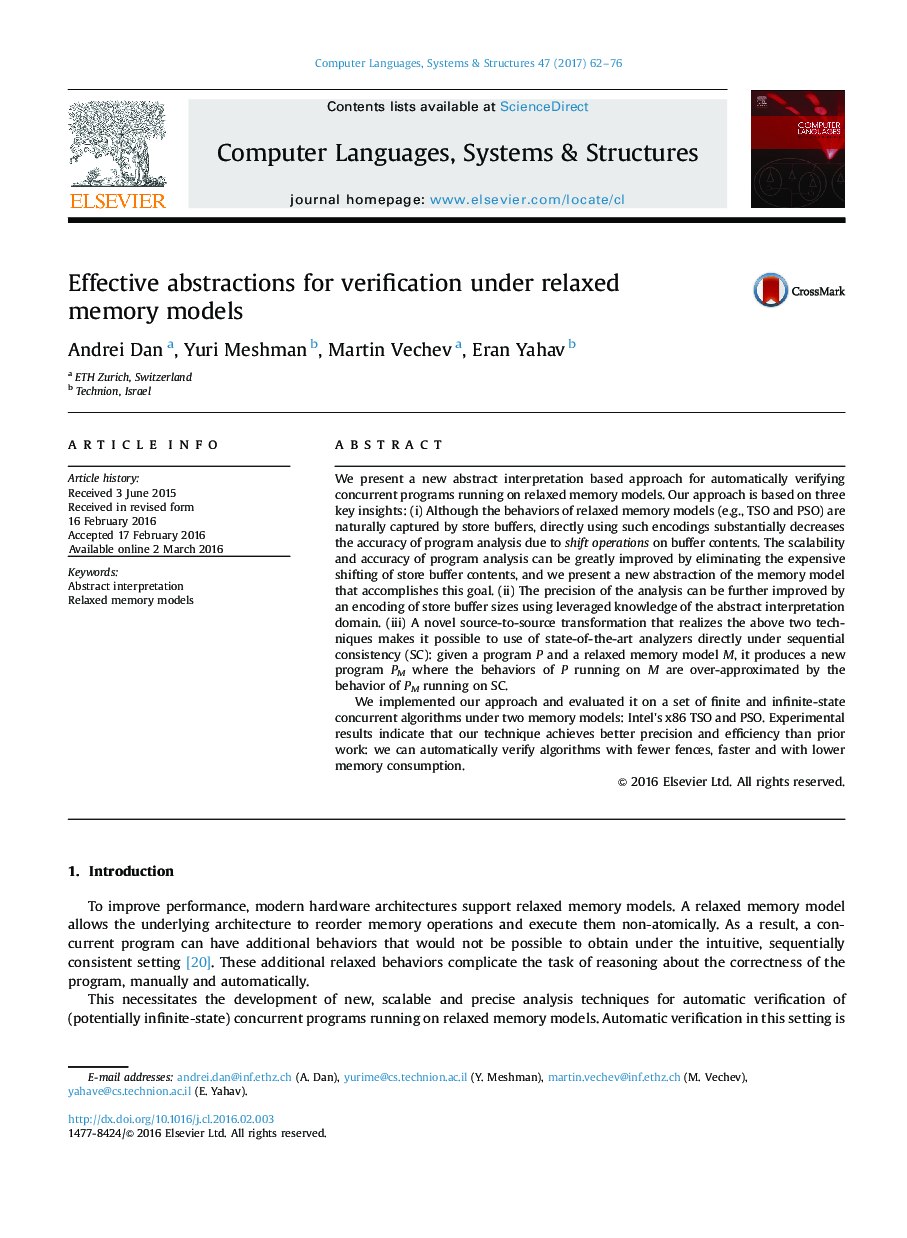| Article ID | Journal | Published Year | Pages | File Type |
|---|---|---|---|---|
| 4949456 | Computer Languages, Systems & Structures | 2017 | 15 Pages |
â¢A new abstraction of the Ã86 TSO and PSO memory models is proposed.â¢The abstraction significantly improves the precision and scalability of the program analysis.â¢Automatically verify algorithms with fewer fences, faster and with lower memory consumption.
We present a new abstract interpretation based approach for automatically verifying concurrent programs running on relaxed memory models. Our approach is based on three key insights: (i) Although the behaviors of relaxed memory models (e.g., TSO and PSO) are naturally captured by store buffers, directly using such encodings substantially decreases the accuracy of program analysis due to shift operations on buffer contents. The scalability and accuracy of program analysis can be greatly improved by eliminating the expensive shifting of store buffer contents, and we present a new abstraction of the memory model that accomplishes this goal. (ii) The precision of the analysis can be further improved by an encoding of store buffer sizes using leveraged knowledge of the abstract interpretation domain. (iii) A novel source-to-source transformation that realizes the above two techniques makes it possible to use of state-of-the-art analyzers directly under sequential consistency (SC): given a program P and a relaxed memory model M, it produces a new program PM where the behaviors of P running on M are over-approximated by the behavior of PM running on SC.We implemented our approach and evaluated it on a set of finite and infinite-state concurrent algorithms under two memory models: Intel׳s x86 TSO and PSO. Experimental results indicate that our technique achieves better precision and efficiency than prior work: we can automatically verify algorithms with fewer fences, faster and with lower memory consumption.
